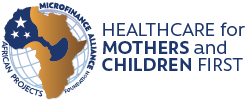Hope That Heals
Our Unique Microfinance Model
Our long-term goal is economic stability for the clinic served by the successful business. This model shows local villagers how micro-funding investing leads to saving lives. Some villages create a lending coop for mothers so female children can have equitable access to schooling and break a traditional cycle of poverty.
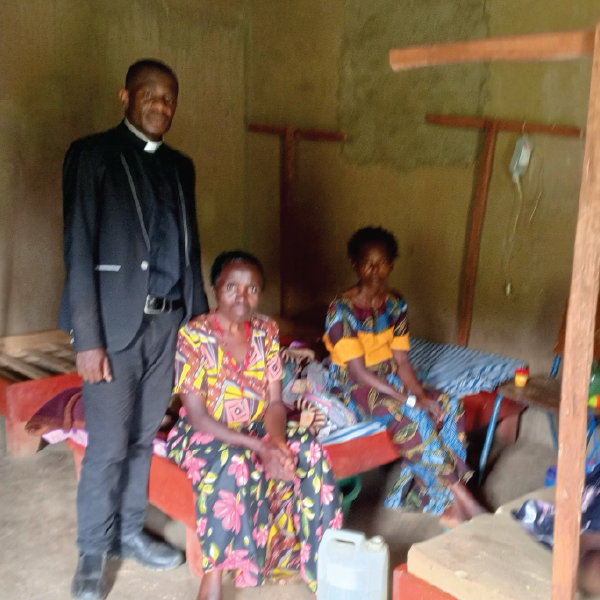
Step 1. GRANT PROPOSAL
Community healthcare leaders seek assistance to keep their facilities open with a grant proposal and plan. Staff struggle to meet the financial demands needed to treat too many mothers and children who come but cannot afford to pay for services.

Step 2. BUSINESS PLAN
MAAP volunteers and personnel share insights and formulate a sustainable business plan, considering local resources combined with MAAP experience and mentoring.
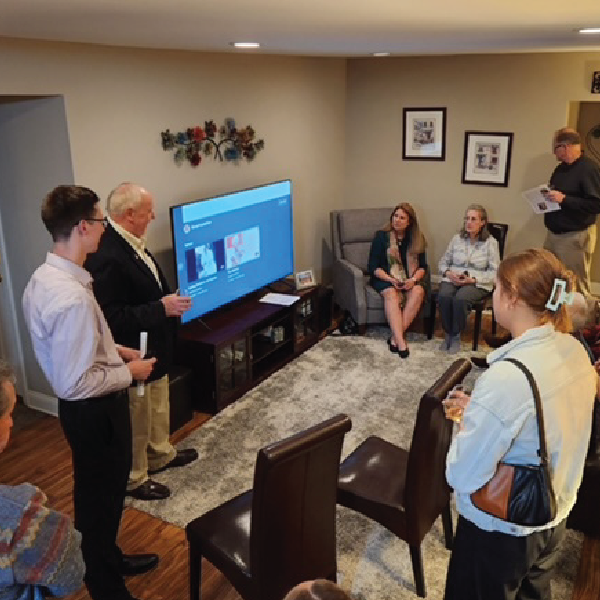
Step 3. CROWDFUNDING
We appeal for $5000 donations, serving as a start-up incubator for the business enterprise, called a Microfinance Investment Grant. An Alliance is formed with US partners.
Note: The only repayment is the sharing of documented progress updates.

Step 4. DOING BUSINESS
The farming facility is built, livestock is purchased or seeds are planted. Profits begin when the harvest goes to market.
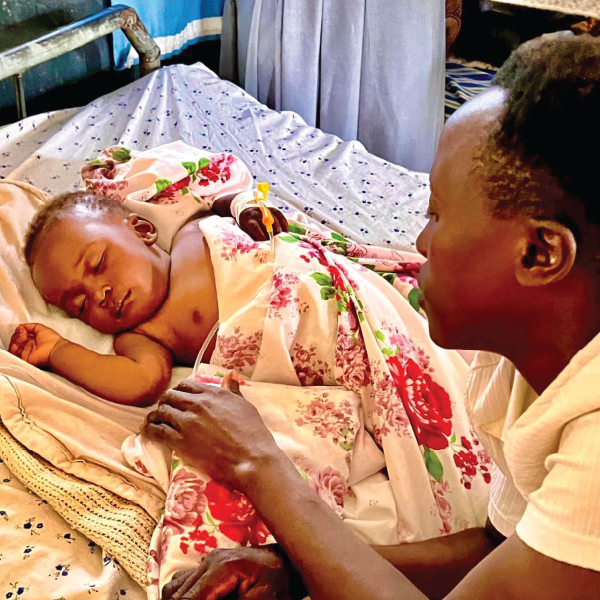
Step 5. CHARITY FUND CREATED
Local leaders transfer profits from the agribusiness to a locally managed, sustainable charity fund. This pays for medical care for mothers and children who are unable to pay.
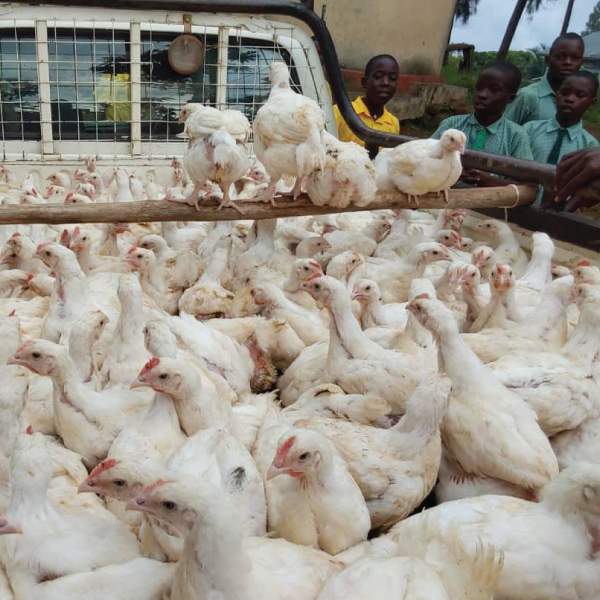
Step 6. PAY IT FORWARD
MAAPF conducts an accountability audit on each business, and progress reports serve as a payback to investors. A portion of the profits is reinvested in continuing the business.
Next steps: Putting the Plan into Action
Once the proposal is approved by the MAAP Foundation, the Parish Priest or Local Leader use the grant money to initiate the plan and follow these steps:
-
Invites The MAAP Foundation representatives to the village
-
Writes a proposal
-
Negotiates an agreement with MAPP Foundation
-
Undergoes training in business management
-
Invests the money in construction
-
Hires the workers
-
Organizes the farm
-
Brings the harvest or livestock to Market
-
Banks the money that is earned
-
Sets up charity bank accounts
-
Arranges access to healthcare for women and children
-
Restarts the farm and the process all over again
-
Audits the results in light of the goals promised
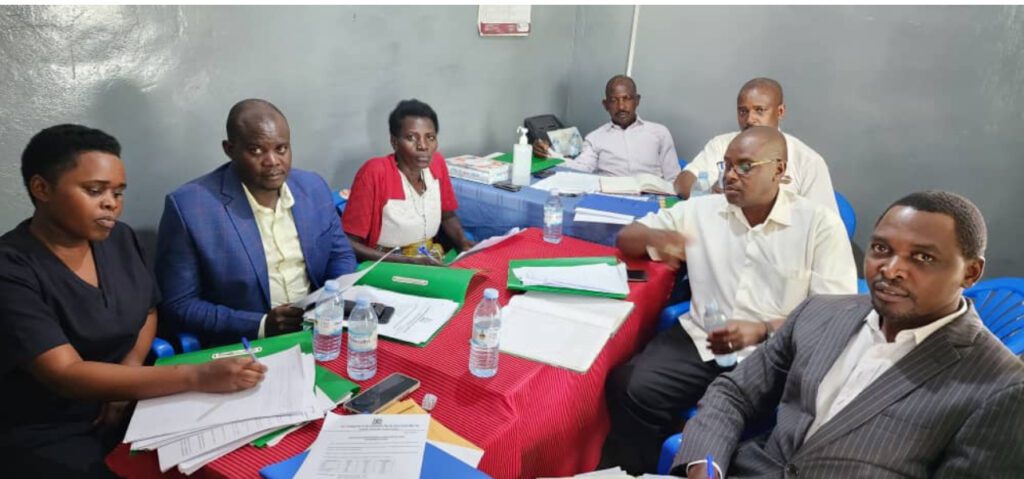
MAAP Foundation Projects
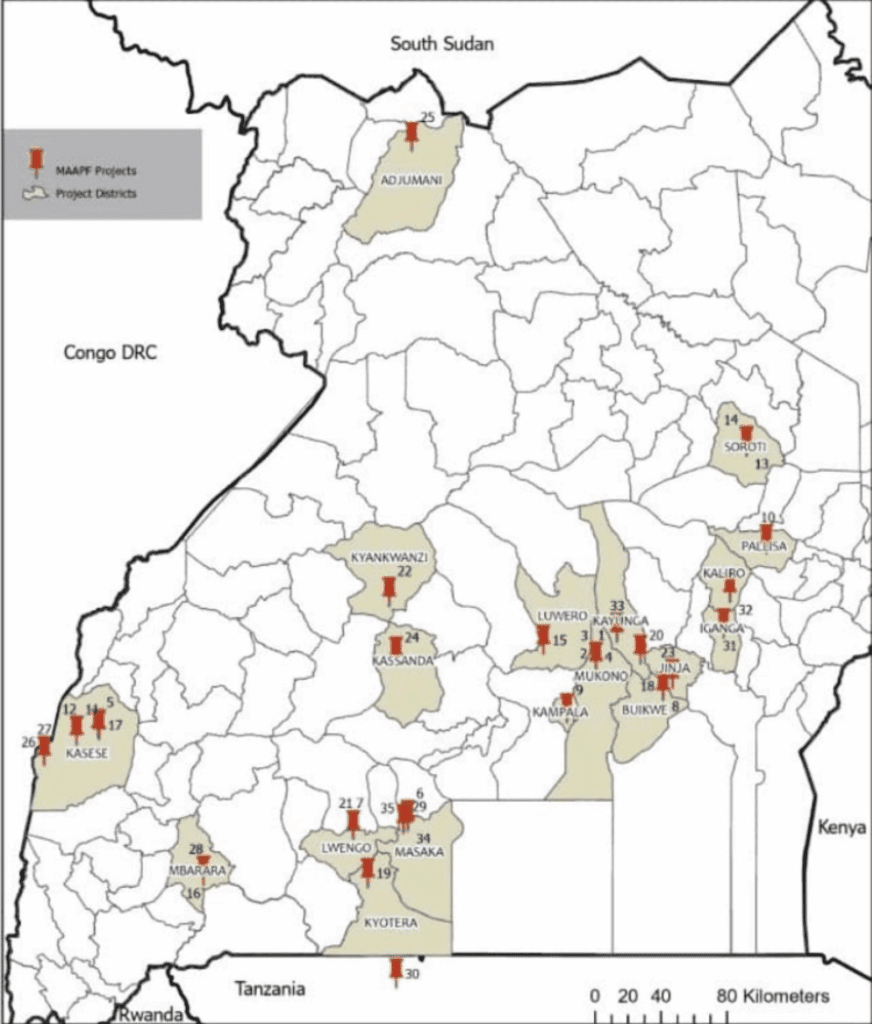
2013-Present.
Kayunga District 13
The initial funds created the Rita Lee Dispensary. Cash and equipment donations included an Ultrasound, incubator, microfinance pig and cow farm. The funds remodeled the facility and created a working surgery center that was not found in rural Uganda.
Valuation total: $50,000
2014-2015
Masaka Disctrict
Microfinance-based grants created small dairy farms that demonstrated economic self-reliance while supporting the local Bikira village clinic with milk profits.
Valuation total: $20,000
2016-2017
Masaka District, Kkonge Community
Dairy breeding farm, expanding to an eight sub-parish malaria prevention mini-clinics. Using profits from the farm to create coffee and elephant grass crops, employing local villagers, and creating subsidized housing for the poor.
Valuation total: $17,000
2017-2018
St. Francis Hospital Clinic at Nyenga
Microfinance 8 local Africans and fed breed dairy cow farm for cattle. Profits support the clinic for impoverished mothers and babies who cannot afford to pay.
Valuation Toal: ~ $15k
2017-2018
Ggaba
Assist the operation of the national seminary to provide milk to feed over 100 students and faculty.
Valuation total: $2,000
2018-1019
Supplied food and drinking water for over 5,000 displaced villagers. Supplied Cholera prevention medicine for the aftermath of the flood.
Valuation total: $15,000
2018-2019
Microfinance Diary Farm facility construction, planting a maize crop, pilot planting seed start up to family farms producing their own food. Profit supports the clinic paying fees for those mothers and babies unable to pay for clinic services.
Valuation total: $15,000
2020-2021.
Kasese Diocese
With Microfinance funds, a Piggery Farm was established to benefit mothers and babies in the Kyarumba villages. Donations provided leprosy support, cook stoves, microscopes, mattresses for the new hospital, and a burn unit for children.
Valuation total: $15,000
2022
Banabikira
Microfinance remodeled a piggery facility to provide supplemental income to serve mothers and babies who cannot pay clinic fees.
Valuation total: $5,000
2022-2023
Soroti
A donation by the Brennan Family paid for a pilot microfinance initiative that built a tilapia and catfish farm to benefit the Soroti Clinic.
Valuation total: $5,000
2021-2022
Kyarymba Clinic
Pilot Microfinance Poultry Farm to pay for medical fees for mothers and children at the Kyarymba Clinic.
Valuation Total: $5,000
2018-1019
Pilot Microfinance Poultry Farm to pay for medical fees for mothers and children who cannot pay.
Valuation Total: $5,000
2022-2023
Luwero Diocese
Microfinanced Poultry Farm to pay for medical fees for mothers and babies who cannot pay for services. Valuation total: $5,000
2022-2023
Collaboration between MAAP Foundation, Our Lady of the Wayside School, and Kasese Diocese. Microfinance for a sewing machine and materials for making and selling menstrual pads.
Valuation total: $2,000
2022-2023
Macy Family Poultry Fram, Nyenga
Microfinance Poultry Farm to pay for medical fees for mothers and babies who cannot pay.
Valuation total: $5,000
2023
Fr. Zeddy and Barry Family
Microfinance Pig Farm to pay for mothers and babies who cannot pay clinic fees. This is the only pig style construction so far.
Valuation total: $5,000
2024
Kyotera District
Microfinance Dispensary for the St. Nazareth Clinic
2024
Kayunga District
2024
Kyankwanzi District, Mityana Dioceses
2024
Jinja Distric in Jinja Diocese
2024
Kassandra District, Klyinda Mityana Diocese
2025-Present.
Kyankwanzi District
2025
Jinja District
2025
Kassanda District
Lwangri Piggery Farm
2025
Piggery Farm in Adjumani District
2025
Kasese District
2025
Kasese District
2025
Mbara Distrtrict
Proposed
2025
Masaka District
Proposed
2025
Bukoba Kagera, Tanzania
2025
Iganga District
Proposed
2025-2026
Kaliro District
Poultry Farm
Proposed
2025-2026
Kayunga District
Proposed
2025-2026
St. Andrews Bikira Health Centre, Masaka
Proposed
2026
Masaka District Piggery Project
Proposed
